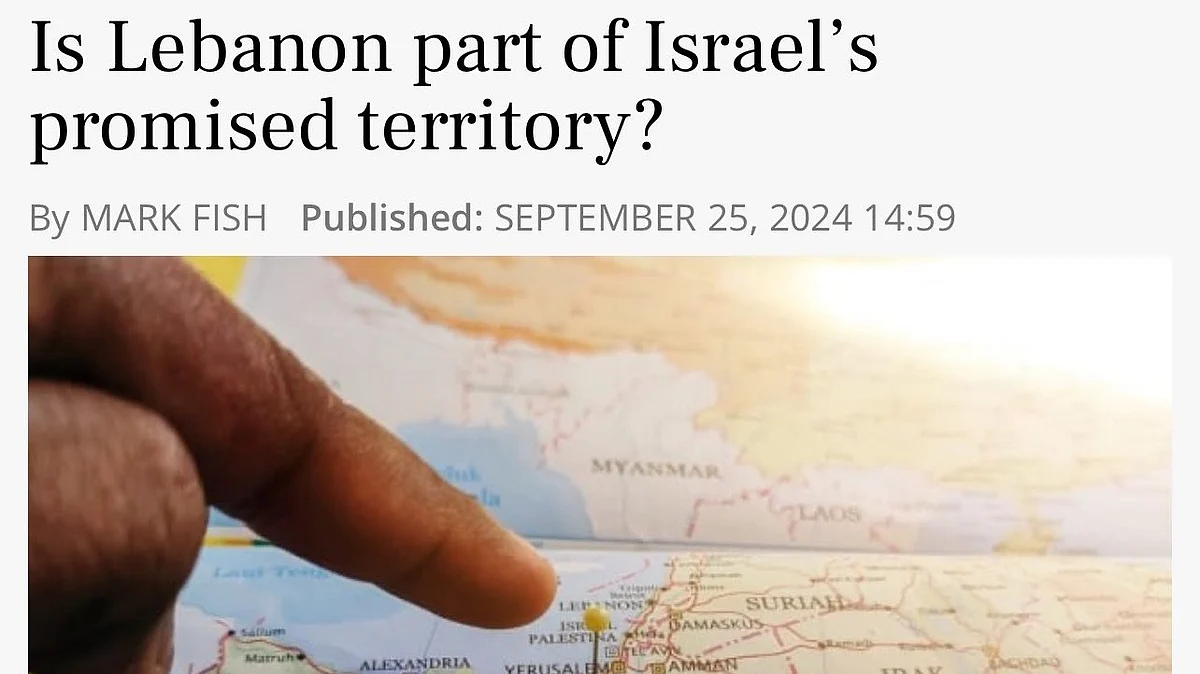Iran vs Israel: The way the war is read
Netizens point out the curious choices of vocabulary in news coverage of West Asia as #IStandWithIsrael trends — but naysayers are equally vocal

The powder keg that is West Asia may not have exploded into full-on World War III as some hyperbolic folks on the Internetz would have it; but it has been more than your everyday 'tense situation in the Middle East' for almost a year now — and just started skyrocketing harder.
What also hasn't escaped the world's attention is how much this set of interlinked conflicts has been about bombast just as much as ballistics. Mind, this is more 'bombast' of the Star Wars variety. Not just sound and fury signifying nothing, but certainly foregrounding verbiage and posturing.
There was Netanyahu's warning to Lebanon, pre-bombardment, eerily reminiscent of last year's warnings to Gaza.
There was the heads-up to Iran and Yemen and its ilk that Israel would "go anywhere".
The latest today, 2 October, is declaring UN secretary-general Antonio Guterres persona non grata in Israel, for not being pro-Israel enough, apparently.
In a post on X soon after Iran fired some 180 missiles into Israel, Guterres condemned "the broadening of the Middle East conflict with escalation after escalation" and said these "must stop". He did not name any specific nation, neither Iran nor Israel.
The reward for his circumspection was Israel's foreign minister Israel Katz calling Guterres an "anti-Israel secretary-general who lends support to terrorists".
But of course, the war of words has ammunition from other nations — and crucially, from international journalists and news outlets in particular, determining how the world reads (or is meant to read the 'Middle East conflicts').
For example, there has been the consistent amplification of Israel's 'human shields' argument with respect to Palestinians (for Hamas) and Lebanese citizens (for Hezbollah), as seen in Netanyahu's speech above. But then, as Iran decided to get involved and drop some fire on Tel Aviv, it seems newscasters like CNN's changed their tune for comparable contexts. Geopolitics clearly matter, as this X user pointed out:
Once, Israel said it had to attack Gaza hospitals and schools because the enemy (Hamas) was using them as hideouts, camouflaging themselves amongst civilians. And now it seems, as Tel Aviv reports assaults on the IDF and strategic Israeli locations, the Netanyahu high command too hide among densely populated civilian spaces. Source: the venerable New York Times, called out repeatedly over the last year for its lopsided reporting.
An Indian citizen highlighted a CNN headline of July 2014 (yes, 10 years ago) about Hamas using human shields in Gaza — and apparently the answer to the question was 'complicated'. He saw fit to draw a parallel to the current question of the IDF using Israelis civilians as a 'shield'.
Other X users joined issue with reports that talked of '10 dead' in a 'huge attack on Tel Aviv' (even as IDF sources at one point said there were no casualties, only infrastructural damage). One pointed out that this was in the same week where Israel had allegedly killed over 1,650 people in Lebanon, besides its continuing action in Gaza for a whole year since the Hamas attack of 7 October.
Another X user pointed out the parallel between Israel's propaganda line of a 'limited ground incursion' into Lebanon and Iran's equally 'limited air incursion' into (even more specifically) Tel Aviv.
An UK citizen called out Tory MP Suella Braverman's 'The UK must stand with Israel now if we are to win this war' and wondered whether she represented the United Kingdom or Israel. 'Who is "we"???,' he wanted to know.
Braverman's stance is, incidentally, also a fair representation of a sizeable portion of the Indian diaspora as well as Indian citizens. However, one Indian citizen took a stand on the other side of the hyperbolic street, and accused the US and Israel of precipitating WWIII:
Sky News aired an interview with a mother in Israel who declared "no country can deal with what we [Israel] have been dealing with for a year", even as she empathised with other mothers worried about their children.
A social media user pointed out that Israel had allegedly killed 17,000 children in a year; what they forebore to mention was how small the area it assaulted was, how concentrated in just a single nation called Palestine that had been under siege and attack for (surely only coincidentally) the exact same length of time.
One more Indian handle kindly amplified an American Jewish (self-professed Zionist) poster's exultant tweet on how little impact Iran's attack actually had on Tel Aviv. (Notably, US President Joe Biden said similar this morning, even as he directed his own nation's troops to defend Israel — he said Iran's ballistic onslaught was 'ineffective'.)
The Indian author added an observation of her own, though: that it seems it is possible, as Iran has done, to execute a targeted attack without significant civilian fallout — in contrast, surely, to Israel's 'strategic' forays into Gaza, the West Bank, Lebanon and really, at this point, who knows where else).
And on the sidelines of the social media warfare are the actual world leaders elected to execute international diplomacy by their 'global citizens'.
So far, Emmanual Macron on behalf of France has called for Israel to withdraw from Lebanon; Georgia Meloni for Italy has offered to host a G7 conference on the escalating Middle East mess; and Narendra Modi on behalf of India has wished Benjamin Netanyahu a happy new year of peace and hope.
Follow us on: Facebook, Twitter, Google News, Instagram
Join our official telegram channel (@nationalherald) and stay updated with the latest headlines